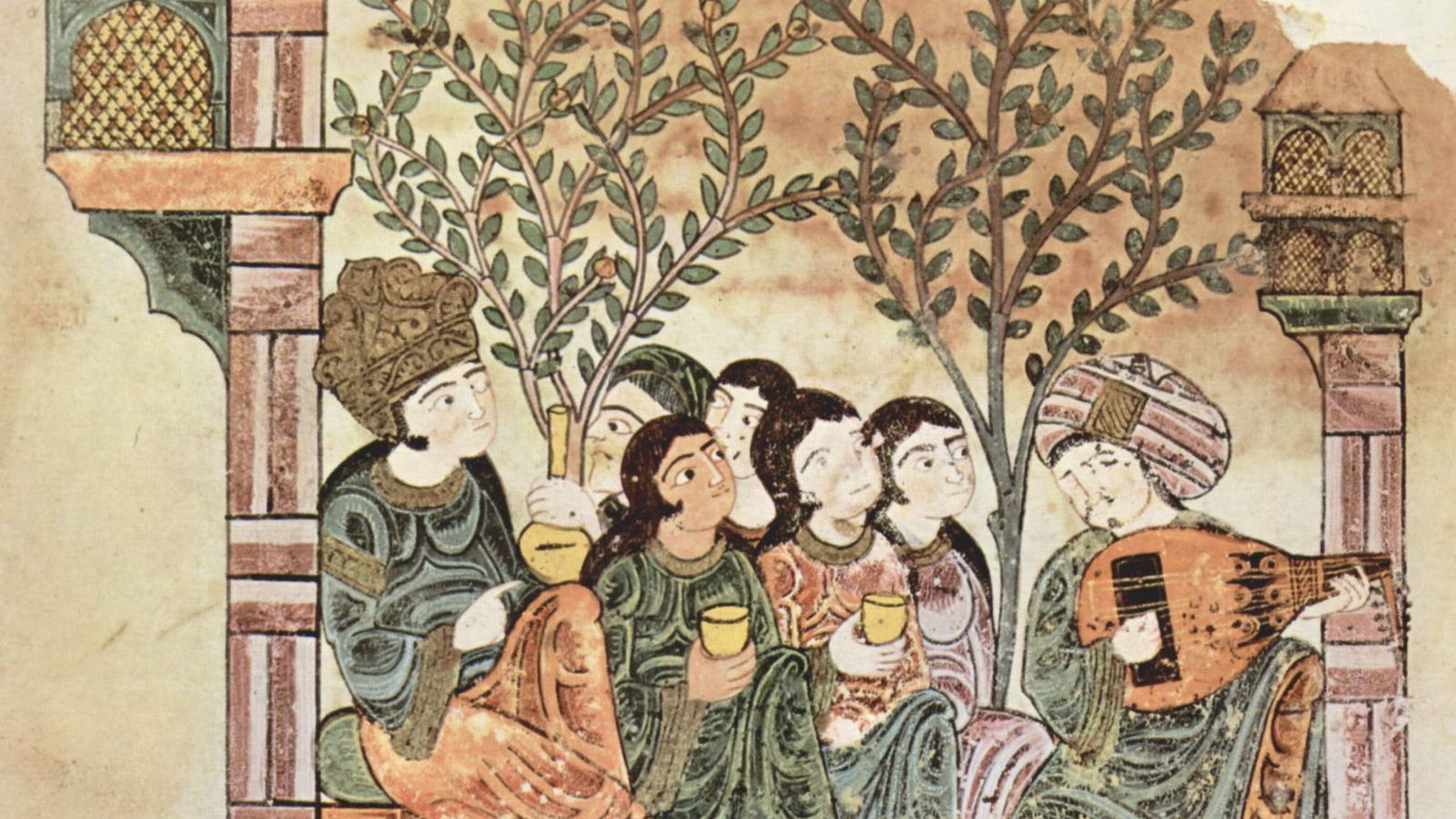
Many of our everyday practices have surprising origins. For example, the idea of serving a three-course meal — soup, main dish, and dessert — is actually credited to a Persian (some say Arab or Kurd) known to history as Ziryab.
His full name is Abu l-Hasan Ali Ibn Nafi, and he was an educated North African, possibly even a freed slave. His accomplishments were many — he’s credited with laying the groundwork for traditional Spanish music, inventing a popular toothpaste, introducing the idea of seasonal fashions, and developing the world’s first deodorant.
But perhaps his biggest contribution was in dining. He thought of the traditional three-course meal, he invented the tablecloth by placing leather covers over wooden, hard-to-clean tables, and he encouraged drinking from glassware instead of heavy goblets. He refined dishes by adding ingredients, like asparagus, which at that time were considered weeds. He even brought etiquette and polite conversation to what we would consider the chaotic meals of the time.
So why haven’t we heard of him? I would think it’s because his deeds were in Islamic culture. As significant as they were, and despite the major impact he had on Europe, there was never room for him in Western history books.
Still, it was a very impressive life.
For more on the accomplishments of Ziryab, see “The Martha Stewart of A.D. 800 Was An Arabic Dude” By Farah Halime (https://www.ozy.com/true-and-stories/the-martha-stewart-of-a-d-800-was-an-arabic-dude/62166/?). The illustration is from that site.
